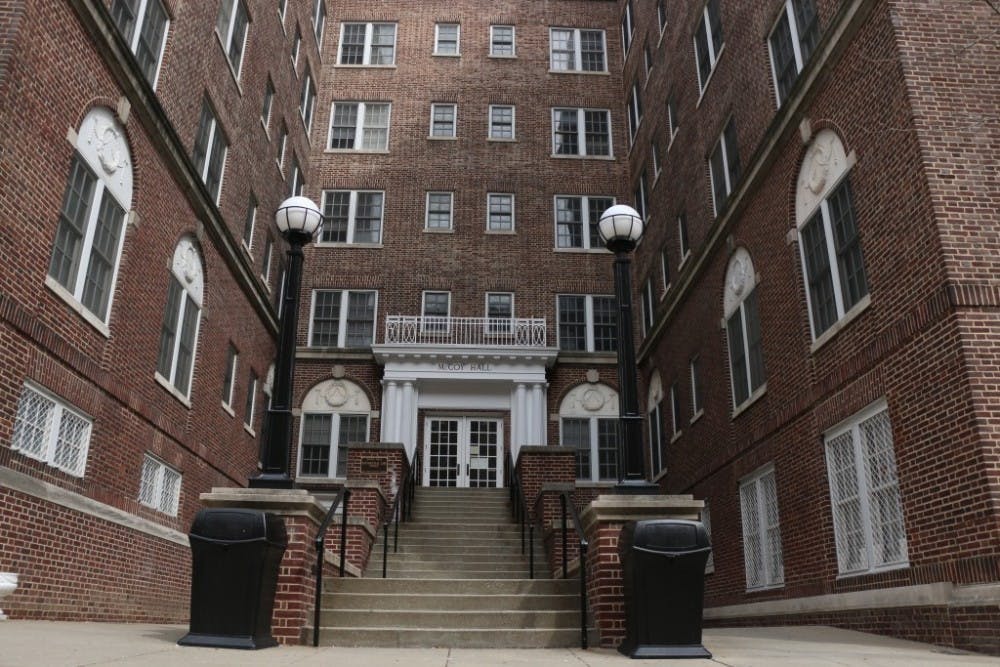Earlier this semester, Vice Provost for Student Affairs Alanna Shanahan emailed all students, instructing them to vacate University housing by March 15 due to the ongoing coronavirus (COVID-19) outbreak. Exceptions were granted to students who could not return home due to international travel restrictions, financial hardship or other extraordinary circumstances.
With the semester coming to an end, University employees have reportedly personally called all students, who were previously granted an exception to stay on-campus, to move out. Students must leave when housing contracts and dining services conclude for the year on May 15. For those who still wish to stay on-campus, Hopkins has offered to continue housing students until July 31 in Homewood Apartments at a nightly rate of approximately $40.
On April 21, an email from the Director of Housing Operations Sarah Mansfield was sent to students still living in University housing, only telling them to expect a call regarding housing operations after the end of the semester. All other information was conveyed via a phone call, according to students. Some said they received calls weeks after the email was sent.
In an email to The News-Letter, Mansfield explained that the new housing rates were equivalent to a nightly rate of a 12-month contract in Homewood Apartments. All students will reside in single-occupancy units that allow for maximum social distancing, and the fees will be charged to their student accounts.
In an email to The News-Letter, freshman Fangjie Li criticized the school’s decision, explaining that it was inconsiderate and irresponsible. She also voiced concerns for the high price University Housing Operations is charging students.
“Even if we ignore the responsibility the school has to support its students to continue [their] education in this difficult time, the price tag set, comparable to similar for-profit services — i.e. Airbnb — makes it seem as if the school is trying to forcefully exploit the residents,” Li said.
Mansfield's email noted that some students with demonstrating needs were offered financial support.
International students, however, are ineligible for U.S. federal aid, and their access to resources from the University’s Financial Aid Office is limited.
In an interview with The News-Letter, freshman Lily Zhu, an international student from China, voiced concerns about the financial impact the University’s actions would have on students.
“It’s a little insane. It’s way above the normal rate they should charge us. I don’t think it's reasonable. It’s definitely expensive to go home at this point — a one-way ticket is probably $4,000. But that’s not the biggest issue at this point. The thing that prevents us from going home is that the flight might get cancelled — it’s just a gamble,” Zhu said.
Inadequate communication from the University was a common concern among students currently residing in University housing.
Zhu described communication from the University as being slow and often ineffective. She described the April 21 email from Mansfield as vague, and she felt that her responses to surveys sent out by the University were ignored.
“[Housing Operations] was not very informative, and they were going around in circles.” she said. “I would appreciate a more timely response. How the school treated us hurt us.”
Sophomore Sophia Xu additionally felt that the University informed the students of their housing policy on short notice.
“I was really shocked because I thought the school would give us more time to leave, and we did not know there were exceptions to staying,” Xu said in an interview with The News-Letter.
Freshman Elaine Wang had planned to stay in the U.S. over the summer instead of returning home to China. In an interview with The News-Letter, she explained that delayed communication from the University added uncertainty as she worked on figuring out her next steps.
“I called the housing office and texted in the GroupMe chat, and they still said they did not have any idea,” Wang said. “The email finally came saying that [a housing staff] would call each of us, but their call did not make its way to me until a week and a half later.”
Wang also said that she heard a rumor that Homewood Apartments currently housed people who were under quarantine due to being exposed to or showing symptoms of COVID-19.
Mansfield did not confirm whether this claim was true. However, she noted the University has designed summer housing in consideration of such possibility.
“We have intentionally designed summer housing to be able to accommodate students who may need to be in quarantine or isolation,” she wrote.
For some students, however, staying in Baltimore is not the ideal solution and they are looking at ways to return home.
Sophomore Anh Tran, a domestic student residing internationally in Vietnam, is waiting for the Vietnamese government to arrange flights for him. This is difficult because the number of international flights have been significantly reduced. In an interview with The News-Letter, Tran said that he wishes to return home as soon as possible.
“We wouldn’t necessarily want to be in housing for long anyways, and we are trying to get out,” Tran said. “The idea of staying in University housing isn’t too appealing to me.”
Tran added that he regrets not leaving the country sooner, noting that the University could have made planning easier had they announced plans for extending remote learning to the end of the semester prior to spring break.
“I kind of missed the boat on leaving beforehand. I shouldn’t have tried to stick it out and hope that school would open again,” he said. “Their [original] timeline was unrealistic. They should have told us earlier, and that would have made planning a lot easier. I’m stuck in the country. I’d rather not be at school.”
Ryan Aghamohammadi and Michelle Limpe contributed reporting to this article





